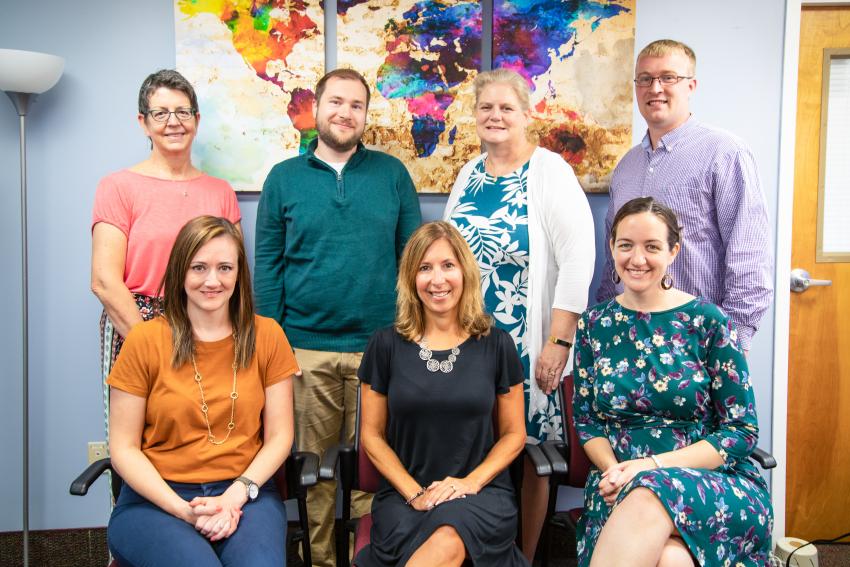Counseling Services Assists Students Who Experience Trauma

Counseling Services Therapist Cynthia Rutherford has seen the stigma associated with mental health change over her 25 years of practice at Arcadia University. In the past, Rutherford said that supporting the “whole student” meant their physical and academic well-being, and their emotional well being wasn’t even a discussion point. Now, supporting the whole student means ensuring the emotional, mental and physical are in balance.
“Students today are more informed, and they’re getting the resources they need earlier,” said Rutherford. “We still have a long way to go though.”
Rutherford specializes in counseling students who have a history of trauma. One of the biggest challenges, Rutherford noted, is helping students understand that Counseling Services and Student Health Services are not mandated reporters and are bound by confidentiality. Students can share whatever they want or need to with therapists, knowing that nothing they share in counseling will be disclosed without their written permission.
“Whatever they need to say, they can say it here,” said Rutherford. “Getting support and not keeping it inside is an important step toward healing from trauma and improving their mental well-being.”
Rutherford noted that students who are uneasy about counseling could seek other forms of support through the Counseling Services webpage, and the Office of Sexual Violence Prevention and Education. Additionally, if they are not living in Montgomery County, Counseling Services can also assist with helping them locate the nearest services.
Getting information about common responses to a traumatic event like sexual assault or harassment can help survivors understand their experience and/or “symptoms.” She emphasized that students should know there is always help available through same-day appointments (held currently over telehealth) or support hotlines listed on the Counseling Services website.
“It’s a gentle process,” said Rutherford about counseling. When speaking with one of the therapists at Counseling Services, she noted that students aren’t pressured to speak about an event or details that they don’t feel comfortable discussing. “It’s respecting where the client is, and what they prefer.”
Rutherford wants all survivors of sexual violence and harassment to know it is never their fault. She said sometimes clients can have feelings of guilt or that their own actions led to the event.
In addition to individual Zoom meetings with therapists, students can also take advantage of online support groups offered through Counseling Services. There is a virtual relaxation room on Counseling Services webpage for students to engage in calming activities. While Rutherford sees students who have survived trauma, she encourages students to seek assistance for any issues they are experiencing that impact their personal and academic successes.

